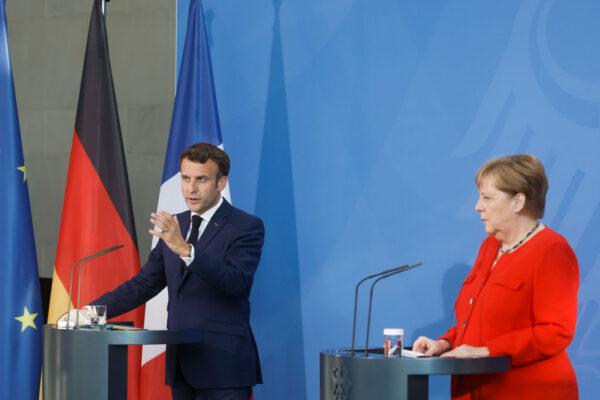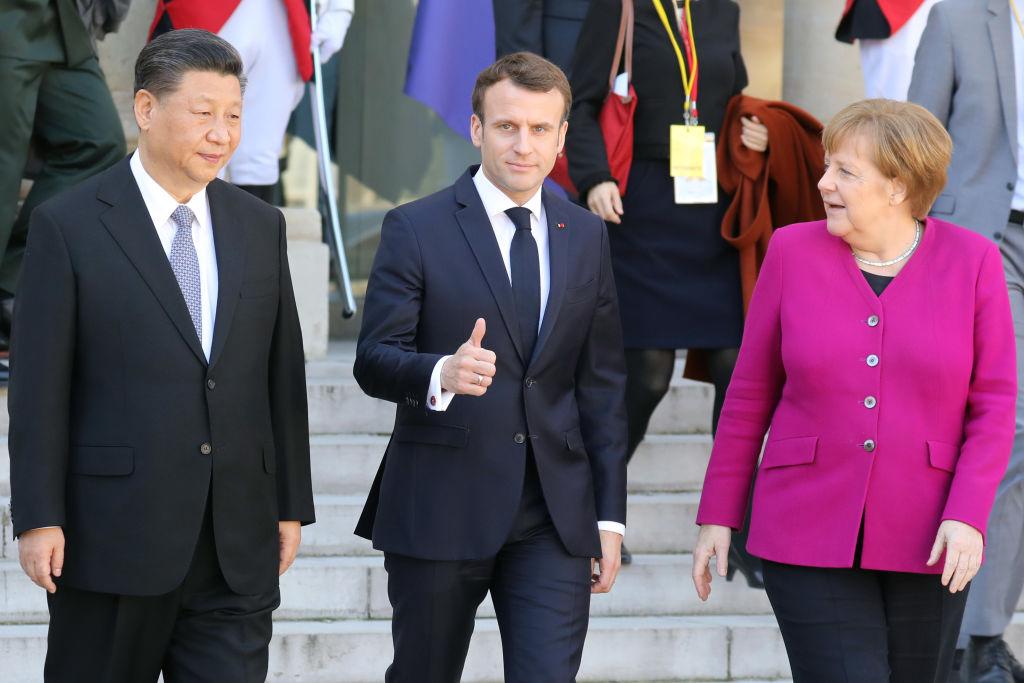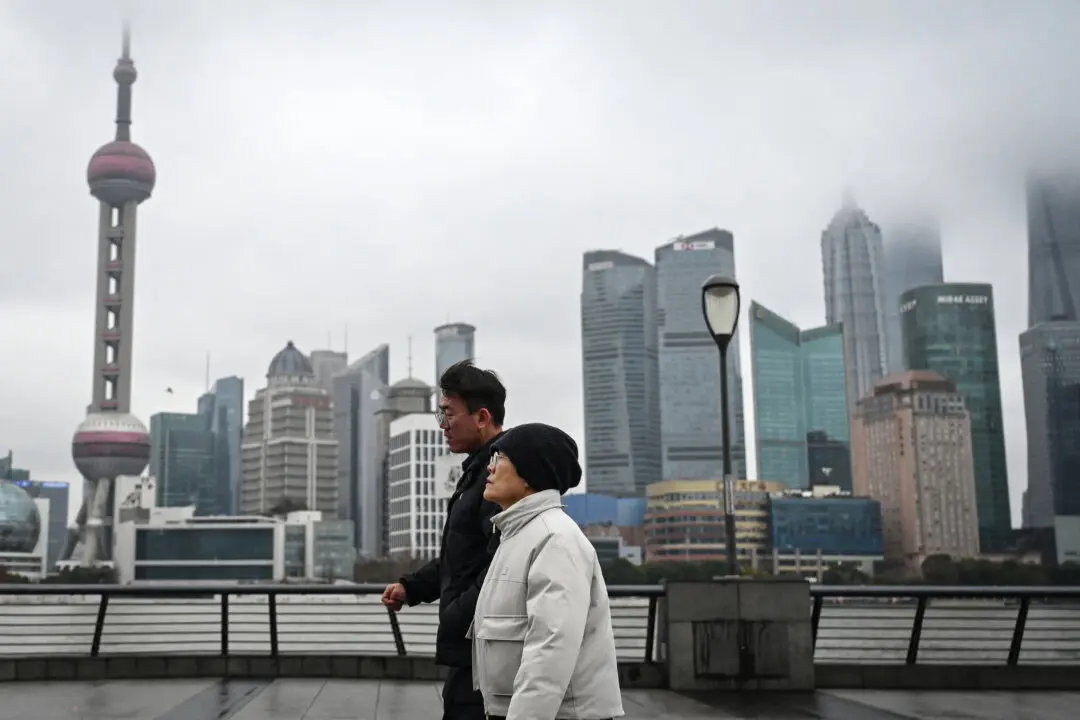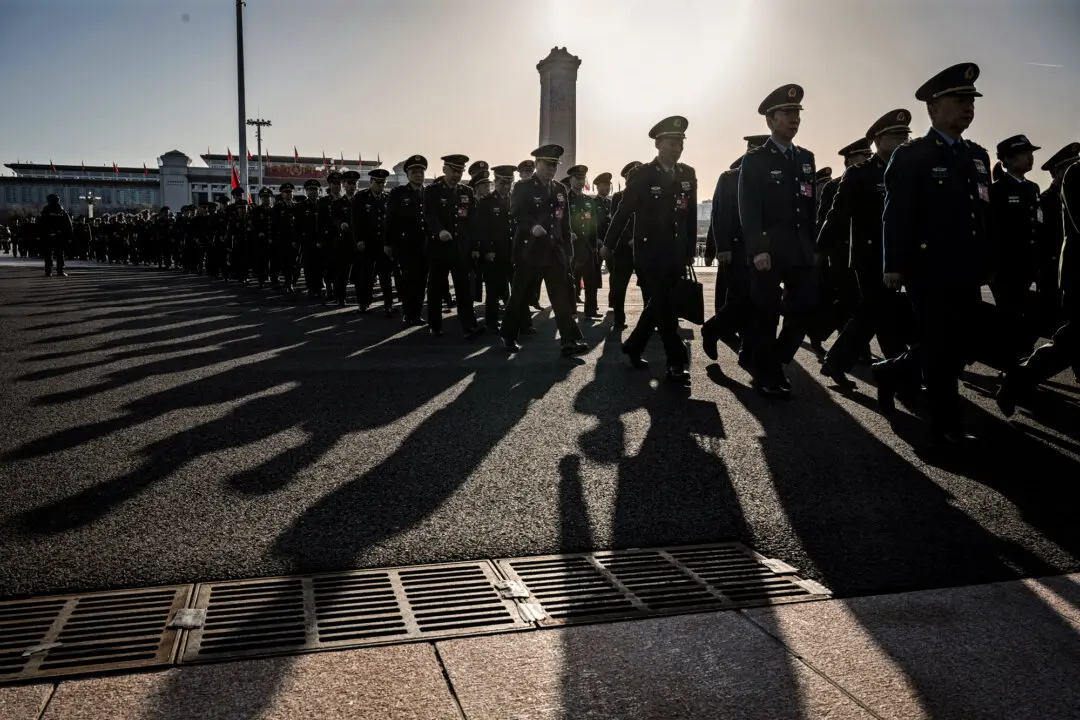Chinese leader Xi Jinping held a video summit on July 5 with German Chancellor Angela Merkel and French President Emanuel Macron. In their coverage of the event, Chinese official media claimed that both French and German leaders expressed support for unfreezing the EU-China Investment Agreement as soon as possible. However, there is no mention of such support in the statements issued by both Germany and France.
Chinese regime’s official media Xinhua and CCTV, viewed by hundreds of millions of Chinese viewers, released the same official transcript on the summit between the leaders of Germany, France, and China. The report cited French President Macron saying that France is committed to continuing to advance cooperation with China in a pragmatic manner, supporting the ratification of the EU-China investment agreement, World Trade Organization (WTO) reform, and communication with China on climate change and biodiversity issues. The transcript also said that Chinese companies were being welcomed to invest in France.
Chinese official media also claimed that German Chancellor Merkel cited EU-China relations as highly important, with mention to many areas of consensus and cooperation. Chinese transcripts said the countries agreed to respect each other and strengthen dialogue to reduce differences, adding that Germany supports reconvening bilateral leaders’ meetings as soon as possible in the hopes that the EU-China investment agreement can be ratified as soon as possible.
The statement regarding the summit issued by the French Presidential Palace not only didn’t mention the EU-China investment deal, it expressed serious concerns over China’s human rights issues and strong opposition to forced labor issues in China.
The Chinese regime’s eagerness to push forward the frozen EU-China investment deal comes at a time when the United States and European leaders are strengthening cooperation in economy and regional security to contain the communist China following the G-7 summit.

The EU–China investment deal had been championed in the EU by Merkel for its promise to open up more sectors of the Chinese economy to EU investment and proposed benefits for European carmakers manufacturing out of China, despite domestic opposition. Macron had supported Merkel’s efforts over the objections of several EU countries, which also caused backlash domestically.
The agreement was signed in December after seven years of negotiations but must be ratified by the EU Parliament to take effect.
Merkel is stepping down in September, while Macron is seeking re-election at the end of the year.




